Each year we interview dozens of IT leaders about their biggest challenges, the best practices, and everything in between. These interviews offer readers a glimpse into the activities of leading IT professionals - in their own words.
Here is a list the interviews you read the most in 2015.
1. What CIOs need to know about microservices and DevOps
 For organizations trying to address development and deployment speed, the introduction of microservices architecture may be a solution. However, it can come with challenges - particularly around the complexity of many moving pieces.
For organizations trying to address development and deployment speed, the introduction of microservices architecture may be a solution. However, it can come with challenges - particularly around the complexity of many moving pieces.
We caught up with Anders Wallgren, CTO of Electric Cloud, to find out what CIOs need to know about microservices and DevOps. Read the full interview for Wallgren's three DevOps "rookie mistakes.”
2. Should you consider a chaotic architecture?
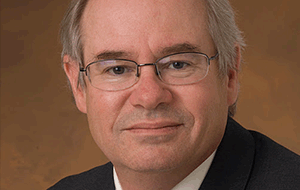 Recently the Jet Propulsion Lab’s technology leadership began a collaborative conversation about chaotic architecture as a cornerstone of the next IT decade (that is, 2015-18). As CIO, Jim Rinaldi, and IT Chief Technology Officer, Tom Soderstrom, define it, chaotic architecture at its core means building technology tools based on changeable modules with a short half-life and securing data while viewing applications as temporary. The Enterprisers Project caught up with the two at their offices in Pasadena, CA, to learn more about this fascinating concept, and how to determine whether it’s a good fit for your enterprise. Read their joint interview to learn if you should consider a chaotic architecture.
Recently the Jet Propulsion Lab’s technology leadership began a collaborative conversation about chaotic architecture as a cornerstone of the next IT decade (that is, 2015-18). As CIO, Jim Rinaldi, and IT Chief Technology Officer, Tom Soderstrom, define it, chaotic architecture at its core means building technology tools based on changeable modules with a short half-life and securing data while viewing applications as temporary. The Enterprisers Project caught up with the two at their offices in Pasadena, CA, to learn more about this fascinating concept, and how to determine whether it’s a good fit for your enterprise. Read their joint interview to learn if you should consider a chaotic architecture.
3. Talent, not shadow IT or hackers, is what keeps CIOs up at night
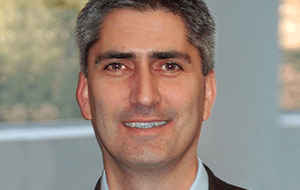 CIOs are often asked to answer the question “What keeps you up at night?” The intention of this question is usually to get them talking about the common pain points facing CIOs in a general sense. But the result is too often an overblown or misrepresented view of what's truly worrying CIOs when they turn off the lights at the end of the day. According to Adam Dennison, SVP and publisher of IDG Enterprise, for the most part, IT leaders have a pretty good handle on the common concerns facing their role – and what really keeps them up is not at all what you might think. We caught up with Adam to discuss. What he had to say might surprise you.
CIOs are often asked to answer the question “What keeps you up at night?” The intention of this question is usually to get them talking about the common pain points facing CIOs in a general sense. But the result is too often an overblown or misrepresented view of what's truly worrying CIOs when they turn off the lights at the end of the day. According to Adam Dennison, SVP and publisher of IDG Enterprise, for the most part, IT leaders have a pretty good handle on the common concerns facing their role – and what really keeps them up is not at all what you might think. We caught up with Adam to discuss. What he had to say might surprise you.
4. Why we changed our software from proprietary to open source
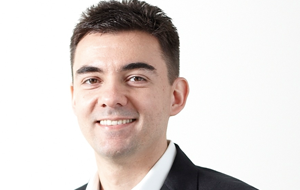 Why would a software company choose to change its product from proprietary to open source? It turns out there are many good reasons, says Dan Mihai Dumitriu, CEO and CTO of networking software company Midokura. In this interview, Dumitriu explains the benefits, including better overall documentation and engineers writing more readable code. Better documented code made it easier for new people joining the project to understand and see where they could make improvements.
Why would a software company choose to change its product from proprietary to open source? It turns out there are many good reasons, says Dan Mihai Dumitriu, CEO and CTO of networking software company Midokura. In this interview, Dumitriu explains the benefits, including better overall documentation and engineers writing more readable code. Better documented code made it easier for new people joining the project to understand and see where they could make improvements.
5. What the New York Times CIO asks when evaluating open source software
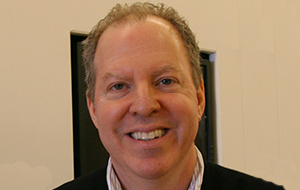 In this interview, now former New York Times CIO Marc Frons explains how his teams evaluate whether to use open source or proprietary software and the simple question that helps guide the conversation. Learn the key questions Frons asks when determining if open source is a good fit for a project.
In this interview, now former New York Times CIO Marc Frons explains how his teams evaluate whether to use open source or proprietary software and the simple question that helps guide the conversation. Learn the key questions Frons asks when determining if open source is a good fit for a project.
6. A conversation with Gene Kim on DevOps, waterfall development, and containers
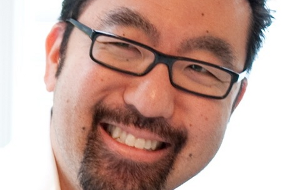 In this interview with Gene Kim, chief technology officer, researcher and author of "The Phoenix Project: A Novel About IT, DevOps, and Helping Your Business Win,” readers learn about Kim’s latest project – “The DevOps Cookbook.” Kim explains how the goal of the book is to put into context the cultural norms, principles, and observed patterns in high-performing organizations that enable fast flow of features from dev to ops while preserving world-class reliability and stability. He also discusses waterfall culture, the role of containers in DevOps and more. Read the interview.
In this interview with Gene Kim, chief technology officer, researcher and author of "The Phoenix Project: A Novel About IT, DevOps, and Helping Your Business Win,” readers learn about Kim’s latest project – “The DevOps Cookbook.” Kim explains how the goal of the book is to put into context the cultural norms, principles, and observed patterns in high-performing organizations that enable fast flow of features from dev to ops while preserving world-class reliability and stability. He also discusses waterfall culture, the role of containers in DevOps and more. Read the interview.
7. How to talk to CEOs about DevOps
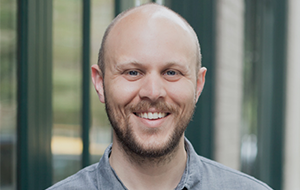 With every business living and dying by its software, C-suite executives are taking an interest in software development processes like never before. How do you talk to a CEO about development challenges and best practices? In this interview, Steven Hazel, co-founder and CTO of Sauce Labs, shares some ideas.
With every business living and dying by its software, C-suite executives are taking an interest in software development processes like never before. How do you talk to a CEO about development challenges and best practices? In this interview, Steven Hazel, co-founder and CTO of Sauce Labs, shares some ideas.
8. The role of CIO in the Internet of Everything – Chief Strategy Officer?
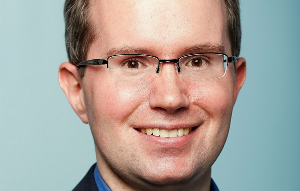 In Part 1 of The Enterprisers Project interview with Dr. David A. Bray, an Eisenhower Fellow who recently traveled to Taiwan and Australia to discuss the Internet of Everything with industry and government leaders, Dr. Bray discussed how a hyper-connected, Internet-enabled future may impact the role of both the CIO and the CEO. While his 2015 travels abroad as an Eisenhower Fellow were in a personal capacity only, Dr. Bray is also chief information officer for the U.S. Federal Communications Commission. Here he dives deeper into what CIOs can do now to lead their organizations into an Internet of Everything era.
In Part 1 of The Enterprisers Project interview with Dr. David A. Bray, an Eisenhower Fellow who recently traveled to Taiwan and Australia to discuss the Internet of Everything with industry and government leaders, Dr. Bray discussed how a hyper-connected, Internet-enabled future may impact the role of both the CIO and the CEO. While his 2015 travels abroad as an Eisenhower Fellow were in a personal capacity only, Dr. Bray is also chief information officer for the U.S. Federal Communications Commission. Here he dives deeper into what CIOs can do now to lead their organizations into an Internet of Everything era.
9. CIOs: Use DevOps to break down traditional development silos
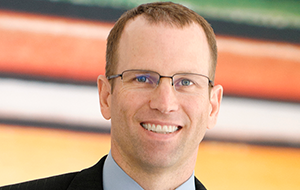 Everyone's talking about the benefits of DevOps, but moving to a DevOps model can be a big challenge for traditional IT departments. How do you break down traditional silos and ingrained ways of doing things? The American Productivity & Quality Center (APQC), a nonprofit focused on business benchmarking and best practices, is completing just such a transition.
Everyone's talking about the benefits of DevOps, but moving to a DevOps model can be a big challenge for traditional IT departments. How do you break down traditional silos and ingrained ways of doing things? The American Productivity & Quality Center (APQC), a nonprofit focused on business benchmarking and best practices, is completing just such a transition.
Who better to share best practices for moving to DevOps than Ron Webb, APQC's executive director of Open Standards Benchmarking, Stats Hub, and Information Systems? He shares what APQC has learned so far.
10. Learn how leading-edge enterprises are experimenting their way to success with DevOps
 A short year ago, DevOps was considered to be in its infancy, and if you were a major organization outside of the “unicorns” and early adopters experimenting with DevOps models and continuous delivery, you were well ahead of the curve. A testament to the fast-paced world IT leaders operate in today, DevOps practices are now being implemented by the most recognized brands across every major industry vertical and playing a significant role in culture, leadership, and business transformation.
A short year ago, DevOps was considered to be in its infancy, and if you were a major organization outside of the “unicorns” and early adopters experimenting with DevOps models and continuous delivery, you were well ahead of the curve. A testament to the fast-paced world IT leaders operate in today, DevOps practices are now being implemented by the most recognized brands across every major industry vertical and playing a significant role in culture, leadership, and business transformation.
The Enterprisers Project caught up with Gene Kim, award-winning expert and author on all things DevOps, to discuss how IT organizations and CIOs are evolving as DevOps continues to gain traction, as well as the key challenges enterprises face as they seek to bring more lean principles into IT. Read the interview.






